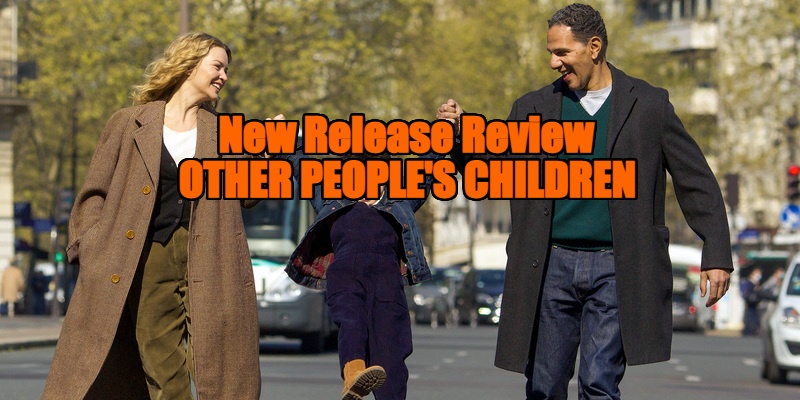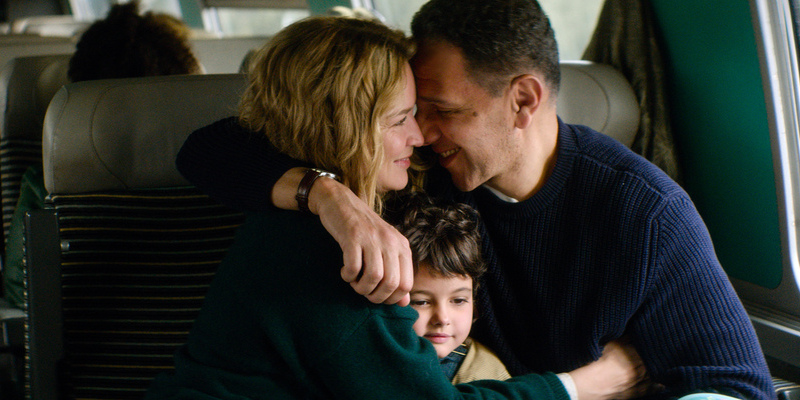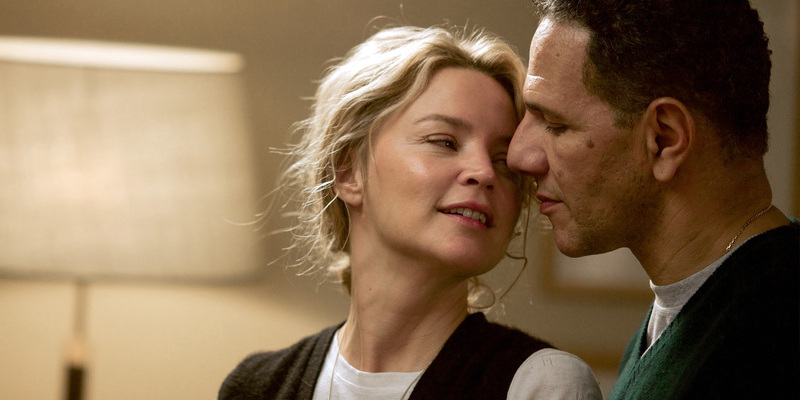
Review by
Eric Hillis
Directed by: Rebecca Zlotowski
Starring: Virginie Efira, Roschdy Zem, Chiara Mastroianni, Callie
Ferreira-Goncalves, Frederick Wiseman, Victor Lefebvre, Henri-Noël Tabary

Writer/director Rebecca Zlotowski opens her fifth feature with
an exhilarating sequence that introduces its protagonist, 40-year-old
Rachel (Virginie Efira). Teaching French to a secondary school
class before shooting across town to a service at a synagogue with her
father and sister and eventually attending guitar lessons in a music
store, all accompanied by propulsive piano jazz, Rachel is painted as
the epitome of Parisian cool, almost a cliché of Gallic cinema. But
Rachel's exciting life is soon revealed to be bittersweet. She's the
eternal cool aunt who longs to be a mother.

Rachel's maternal instincts are aroused when her lover, Ali (Roschdy Zem), introduces her to Leila (Callie Ferreira-Goncalves), the
five-year-old daughter whose custody he shares with his ex-wife Alice
(Chiara Mastroianni). A visit to her gynaecologist, played by the
iconic American documentarian Frederick Wiseman, lets Rachel know
in no uncertain terms that her biological clock is ticking, and if she
wants to become a mother she better act fast.
While hoping to become pregnant, but keeping this wish a secret from
Ali, Rachel begins to bond with Leila. It seems she might be accepting
the idea that being a stepmother to Leila might be good enough, but the
kid is confused by Rachel's presence. In one heartbreaking scene we
watch as Rachel overhears Leila tell her father she doesn't want Rachel
coming around and that she wants her mother to be with Ali once
again.

The title also refers to Rachel's role as a teacher. Zlotowski takes a
rather negative view of the French school system's willingness to
discard troublesome students, with Rachel battling her school's desire
to cast out one such pupil, Dylan (Victor Lefebvre), a wayward
16-year-old who seems to have a crush on Rachel, as does one of her
fellow teachers (Henri-Noël Tabary).
Zlotowski has constructed a tacitly effective drama, its subtle rhythms
dictated by the inability of adults to conduct loud arguments in the
presence of children. There are some quietly devastating moments, like
an elderly woman telling Rachel how Leila looks just like her, and a
late moment when Rachel and Ali are forced to feign affection in front
of the girl in the immediate aftermath of negotiating a breakup.

Efira, who has quickly become one of the stars of French cinema in the
past few years, conveys Rachel's hurt with a palpable sadness that the
viewer can pick up on even if those around her can't. Efira's movie star
looks allow Rachel to present a front in the company of others, who
likely see her the way we did in the opening segment, an aspirational
woman about town who seems to have everything going for her. By the end
of the film we're aware of her true, tragic situation, but a late
encounter affords Rachel a crumb of comfort that we suspect might be
kneaded into a loaf of hope.


